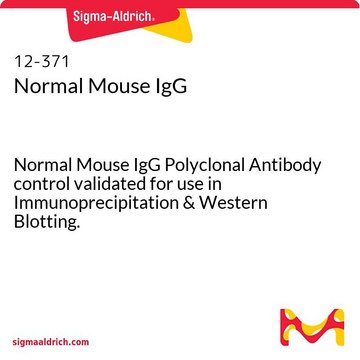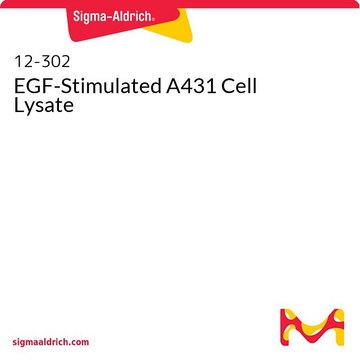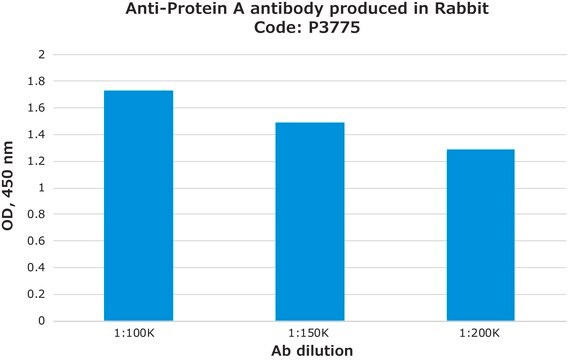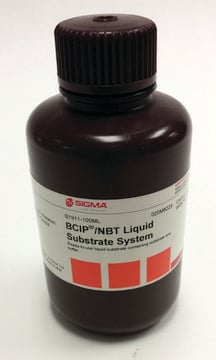AP308A
Goat Anti-Mouse IgG Antibody, (H+L) Alkaline Phosphatase conjugate
1 mg/mL, Chemicon®
About This Item
Prodotti consigliati
Origine biologica
goat
Livello qualitativo
Coniugato
alkaline phosphatase conjugate
Forma dell’anticorpo
affinity purified immunoglobulin
Tipo di anticorpo
secondary antibodies
Clone
polyclonal
Reattività contro le specie
mouse
Produttore/marchio commerciale
Chemicon®
Concentrazione
1 mg/mL
tecniche
ELISA: suitable
western blot: suitable
Condizioni di spedizione
wet ice
modifica post-traduzionali bersaglio
unmodified
Descrizione generale
Specificità
Applicazioni
Immunohistochemistry/immunocytochemistry: 1:200-1:500 (3,4)
Western Blot, chromogenic: 1:200- 1:500 (1,2)
Western Blot, chemiluminescent: 1:2,000-1:5,000 (1)
Optimal working dilutions must be determined by the end user.
Secondary & Control Antibodies
Whole Immunoglobulin Secondary Antibodies
Stato fisico
Stoccaggio e stabilità
Note legali
Esclusione di responsabilità
Non trovi il prodotto giusto?
Prova il nostro Motore di ricerca dei prodotti.
Codice della classe di stoccaggio
12 - Non Combustible Liquids
Classe di pericolosità dell'acqua (WGK)
WGK 2
Punto d’infiammabilità (°F)
Not applicable
Punto d’infiammabilità (°C)
Not applicable
Certificati d'analisi (COA)
Cerca il Certificati d'analisi (COA) digitando il numero di lotto/batch corrispondente. I numeri di lotto o di batch sono stampati sull'etichetta dei prodotti dopo la parola ‘Lotto’ o ‘Batch’.
Possiedi già questo prodotto?
I documenti relativi ai prodotti acquistati recentemente sono disponibili nell’Archivio dei documenti.
Il team dei nostri ricercatori vanta grande esperienza in tutte le aree della ricerca quali Life Science, scienza dei materiali, sintesi chimica, cromatografia, discipline analitiche, ecc..
Contatta l'Assistenza Tecnica.








